Danger of musk ketone in perfumes
Musk ketone is widely used as a synthetic alternative to natural musks and is extensively found in various consumer products such as perfumes, cosmetics, soaps, lotions, sprays, and detergents. Studies have revealed a number of dangers of musk ketone in perfumes ranging from hormone system disruption to cancer risks to environmental toxicity.
In this article, we’ll be exploring some of the common dangers of musk ketone in perfumes according to scientific studies. But before we get into how musk ketone can harm humans and the environment, it’s important to learn the basics of musk ketone a little bit more. So, let’s get started.
Table of contents
-
What is a musk in perfume?
-
What is musk ketone?
-
What does real musk smell like?
-
What does musk ketone smell like?
-
Is musk still used in perfume?
-
How is musk extracted?
-
What is the musky smell?
-
Properties and benefits of natural musk
-
Is musk harmful to humans?
-
Danger of musk ketone in perfumes
-
Final words
What is musk in perfume?
Musk is a distinctive aromatic compound that is naturally found in some rare animals and very few plant species. Animals that can synthesize musks in their glands are often named with this precious material such as musk deer and muskrat, for example, as well as others.
What is musk ketone?
Musks are one of the most sought-after as well as costliest fragrant materials in the world. It is so highly desired in perfumes that natural sources are far behind in meeting its global demand. This challenge has been met by creating a series of artificial musks such as muscone, galaxolide, helvetolide, and of course, musk ketone, one of the most widely used synthetic musks which are found in the overwhelming majority of fashion musk fragrances.
In perfumery, musk ketone is usually used as a potent fixative that helps stabilize a perfume’s volatility and enhance the intensity of the perfume scents.
What does real musk smell like?
Musk imparts a unique and distinct scent that is subtle yet extremely powerful and has no other analogs. The scent of musks is often compared with earthy and woodsy smells with a powdery yet almost quiet similar to a baby’s skin. The sweet yet strong scent of musk is usually used as a base note in perfumes. In essence, musk is magical and inexpressible in words.
What does musk ketone smell like?
Musk ketone imitates the scents of natural musk. But it slightly differs and does not hold onto any properties like the real ones. The nose that has ever experienced the real musk will definitely be able to differentiate between real and artificial.
Is musk still used in perfume?
Musk is a highly desired animal pheromone that has been used in perfumery for thousands of years along with ambergris, castoreum, civet, and hyraceum. The animals that produce musk naturally such as musk deer have mostly become endangered. For this reason, the trade of musk is banned in most countries and nearly all mass-produced musk perfumes contain either synthetic or natural substitutes like ambrette (Hibiscus seeds), the botanical musk.
How is musk extracted?
Natural musk is collected from the musk pods, two small preputial hairy glands that synthesize musk in a sac or pouch under the belly located very near to the genitals of the adult animals. Then it is dried under the sun and seems like tiny powdery grains that impart very strong smells. In natural perfumery, it is used to make a tincture by infusing it in pure alcohol for years.
What is the musky smell?
Musk’s smell is very sweet yet strong and it is difficult to pass by without admiring it. It is described as animalic, woody, earthy, and intoxicating. Musks are produced by their source animals such as male musk deer to attract their mate and induce her to cuddle him, and the musky smell can do the same for humans as well.
Properties and benefits of natural musk
Natural musk has been used not only in perfumes but also in traditional medicines for thousands of years. Along with other medicinal ingredients like ruby powder, honey, and others, it is still rarely used in Unani and Ayurvedic medicine as an aphrodisiac or tonic as it has an incredible capacity to enhance vital forces in the body. It contains natural chemicals that act like androgens, a type of male sex hormone that supports the male reproductive system.
The smell of musk has a noticeable ability to directly impact the hormone and nervous system in the body, which is why it is also beneficial to balance and improve mental and emotional stability. It can support mental clarity and spiritual performance where the purity of devotions and intentions matter. This is the main reason why musk is considered one of the noblest and purest matters on the earth in Islamic culture, and was widely used by Muslim saints.
Musks are mentioned nearly in all traditional pharmacopeias and are widely used for the treatment and prevention of nerve problems, stroke, coma, heart issues, blood vessels and circulation problems, and seizures or convulsions, as well as others. It is believed that musk has an extraordinary ability to stimulate the endocrine system so that it releases hormones the human body needs to keep the body, mind, and soul balanced.
Is musk harmful to humans?
While natural musk has been associated with numerous positive effects on the human body, synthetic musks such as musk ketone have been linked to diverse serious health hazards, particularly disrupting hormone systems and cell functioning that contribute to developing various health issues in the body.
Let’s have a look at some of the most common dangers of musk ketone in perfumes:
The danger of musk ketone in perfumes
Musk ketone is one of the most widely used synthetic musks that vaguely resembles the odor of natural musk and is extensively used in perfumes and other fragrant consumer products such as scented lotions, soaps, sprays, body washes, hair products, softeners, and detergents. This chemical enters the human body via inhalation, skin absorption, and sometimes even ingestion, for example, in foods that are exposed to musk ketone.
Musk ketone bioaccumulates in the environment and is partially degradable. Therefore, it disperses throughout the environment and contaminates water, soil, living spaces, and air. Musk ketone and other synthetic musks have been detected in human blood, breast milk, body fat, and even umbilical cords.
Musk ketone can mimic natural hormones and replace them in the body, which potentially confounds the endocrine system and correspondingly, several important biological processes. High levels of this chemical in women’s blood have been linked to various female reproductive abnormalities such as infertility and ovarian failure.
According to the Environmental Working Group (EWG), Musk ketone may also be associated with developing brain cell degeneration and even certain types of cancer.
Common dangers of musk ketone may include:
- Cell system toxicity
- Hormone systems disruption
- Reproductive and developmental abnormalities
- Bioaccumulation
Final words
Musk ketone is one of the synthetic chemicals that is widely used in perfumes and other fragrant products to imitate the scent of natural musk. Studies have associated several serious health and environmental dangers of musk ketone in perfumes. Therefore, it’s important to avoid this chemical by using natural alternatives such as Ambrette (Hibiscus seeds) to protect mankind as well as the environment from musk ketone hazards.
MUSKDEER IS AN ENDANGERED SPECIES
LA VIA DEL PROFUMO DOES NOT SELL IT
Sources:
National Institutes of Health, National Library of Medicine
Musk ketone
GHS Hazard Statements:
H351: Suspected of causing cancer [Warning Carcinogenicity]
H400: Very toxic to aquatic life [Warning Hazardous to the aquatic environment, acute hazard]
H410: Very toxic to aquatic life with long lasting effects [Warning Hazardous to the aquatic environment, long-term hazard]
SEE ALSO:
Muskdeer – The scent of the Hereafter
Ambrette (Hibiscus seeds), the vegan musk



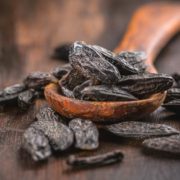
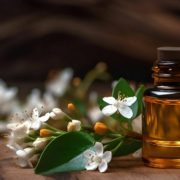
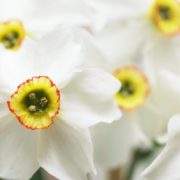
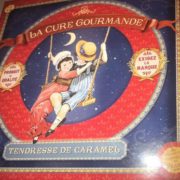



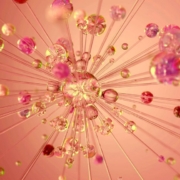













I wish more people knew this. I find the scent of powdery white musk repugnant and toxic. Such a cheap easy way to snow a fragrance white washing all the components with in a baby powder avalanche. I don’t see any dexterity in using it. It’s turned me off to the point where I’ve been closed to even ethically sourced musks. And now to find out it’s poisonous. I can’t imagine why it’s still being made and sprayed so liberally. Now almost all my Lucky Scent testers have the same scent. WHITE MUSK!! NOOOO.